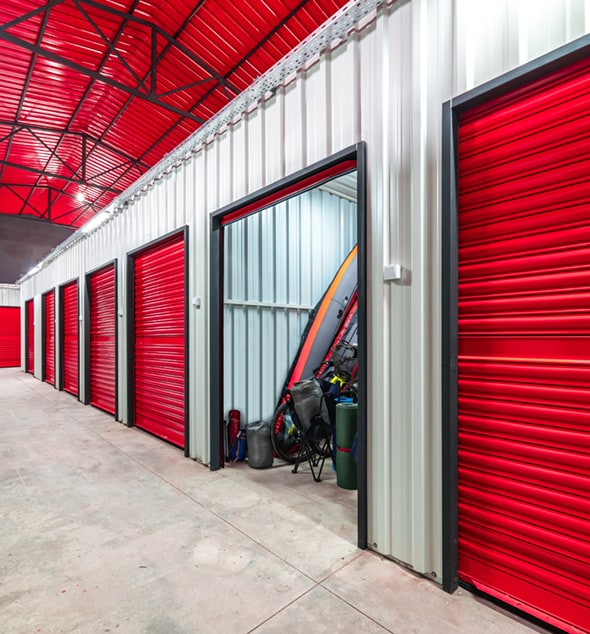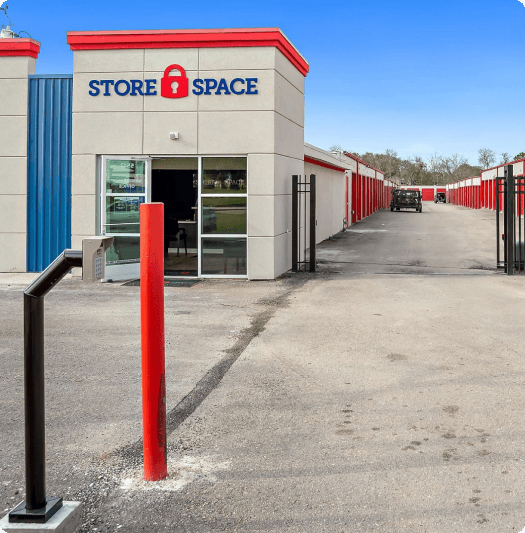9 Short- and Long-Term Camper Storage Tips to Make You a Happy Camper
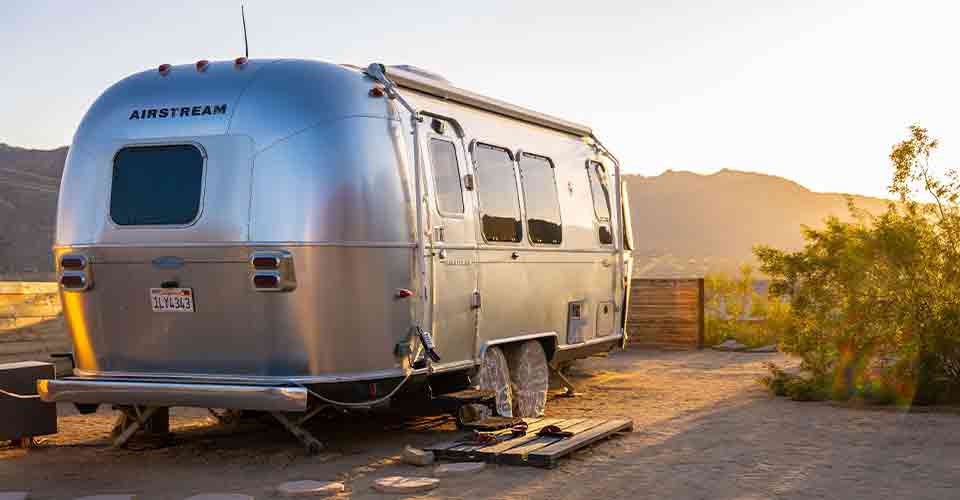
If camping makes you a happy camper, camper storage can make you an even happier camper. How so, you may ask?
Well, with 11.2 million recreational vehicles on the road, it stands to reason that you’ve got to put your camper someplace when you’re not out gallivanting between Walmart parking lots, KOA campgrounds, and our country’s beautiful state and national parks.
About a million of you live in your campers full-time. Some people are lucky enough to have an extended driveway, an outbuilding or a camper pad at their houses, but for most homeowners and renters, finding an affordable, secure location to store their campers and RVs can be a challenge.
That’s where Store Space comes in. We care about making you a happy camper.
Take a few minutes to brush up on your camper storage tips, and then use our storage location finder for the Store Space nearest you!
Camper Storage vs RV Storage: What's the Difference?
What’s the difference between campers and RVs? That’s kind of a trick question.
The terms “RV” and “camper” are often used interchangeably. But they do have one main difference. Campers are typically pulled, towed or attached to another vehicle, and RVs can be driven on their own. In terms of storage, they can typically be treated the same.
All recreational vehicles can be categorized into one of three classes—A, B or C. Class A RVs are the largest, they can be up to 45 ft. long and sleep up to eight people. Class B motorhomes are the smallest, and Class C motorhomes are somewhere in the middle.
So, if you’ve invested in “wheel-estate,” or are searching for the ultimate camper storage solution or just need a place to store your “mobile gnome” collection, we’ve outlined the four main types of campers and included some tips and tricks for storing your camper!
The 4 Main Types of Campers
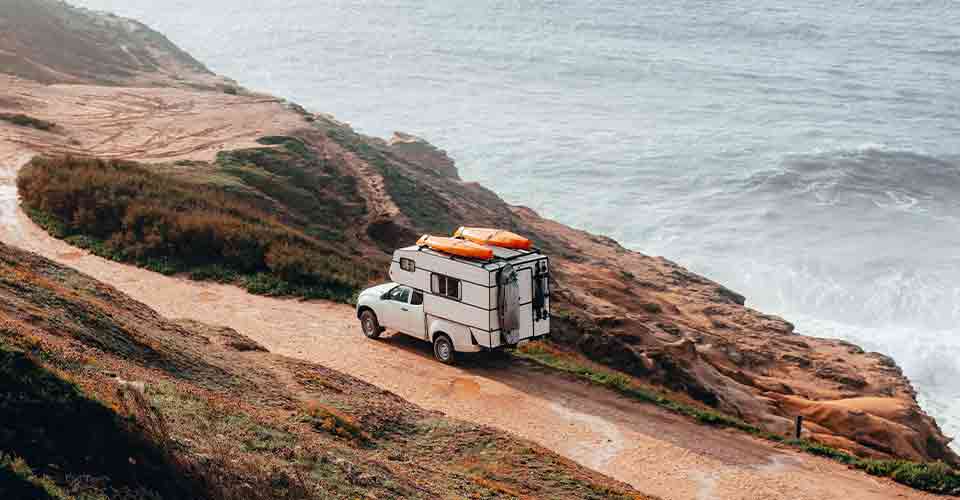
- Travel trailers: can be up to 30 feet in length or longer; usually include a kitchen, sitting area, bed and bathroom; must be towed by hitches on sturdy vehicles
- Popups: much lighter than travel trailers; least expensive camper option; canvas siding allows for collapsible travel; include a bed, mess area and sometimes a bathroom; can be pulled by 6-cylinder vehicles
- Truck campers: these attach to the bed of a truck; are less expensive; often include a bed, kitchen and a bathroom; can vary in size
- Fifth wheel trailers: these are some of the largest campers; more space and storage; split-level style, include multiple bunkrooms, a kitchen and bathroom; must be towed by a capable truck with the right horsepower and suspension; require a special mount to tow
Types of Camper Storage
Before you run out and rent the first camper storage unit you can find, it’s important to know all your options. Whether you’ll be back on the road in a month or are looking for long-term off-season storage, our month-to-month rentals give you easy access whenever you need it. For even more RV storage information, check out our RV storage guide.
Outdoor parking spaces
Outdoor parking spaces are a great option for storing your camper. With spaces ranging anywhere from 20 ft. to upwards of 35 ft. or longer, they’re perfect for Class A, B, or C motorhomes, camper trailer storage, travel trailer storage and even fifth-wheel trailer storage. These spaces are located behind the facility gates and most often fenced in as well.
Pro tip: Some of these spaces are covered, and some are not. Be sure to check the facility’s details to ensure you get what you’re looking for. (If it’s not a covered space, put a cover on your camper so it’s protected from the elements.)
Indoor drive-up units
Another choice for camper storage is drive-up units. As the name implies, you can drive your camper right up and into the storage unit. Some indoor storage facilities are in a warehouse-style setting, or have a special oversized door for taller vehicles. Be sure to read your Rental Agreement fir additional information.
Traditional drive-up units have a 7-ft. door. So, your teardrop trailer can usually fit, but an Airstream trailer or taller travel trailer would require a specialized unit with a taller door, or outdoor storage. The smallest units that could be used for camper storage are 10 ft. by 15 ft. (for popups and some truck campers), followed by 10 ft. by 20 ft. units which can be used for most Class B motorhomes and travel trailer storage, and some facilities will offer drive-up units as long as 35 ft. for larger Class A motorhomes and RV camper storage.
Pro tip: When you’re measuring the length of your camper, make sure to include the tongue when determining what size storage unit you need.
Camper Storage Tips
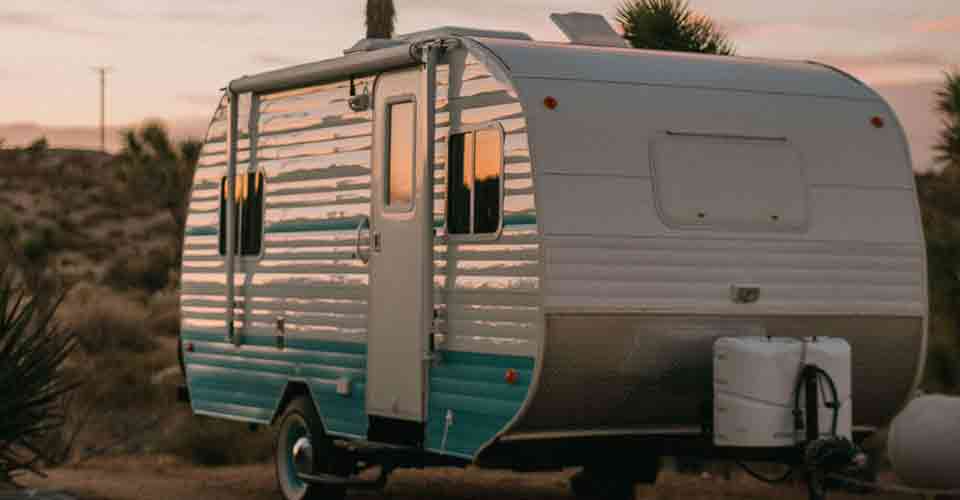
Short-term camper storage
If you’re only storing your camper for a short time, there’s a few steps you can skip in terms of prepping it for storage. But, in the long-run, the more thorough you are in-between trips, the better shape your camper will be in.
Here’s a few things to cross off your to-do list whenever you put your camper in storage (no matter how long it stays there).
1) Where'd all the food go?
Even if you’re only leaving your camper in storage for a month or two, you need to remove all the food from your vehicle. This is important whether you choose drive-up units or any type of outdoor parking.
2) Don't forget about the tires
Your tires are pretty sturdy, but make sure they stay that way with proper storage techniques. Inflate your tires (not too much, not too little, but just right), and if possible, deploy your camper’s stabilizer jacks to take the weight off the tires to help avoid flat spots.
3) Make sure you're up to date
Whenever you put your camper into storage, you still need to ensure all your documents are up to date. This includes registration and insurance.
Long-term camper storage
There are a few extra steps in order to properly store your camper for long-term storage. If you’re planning to keep your vehicle in the cold, it’s also a good idea to winterize your camper with this checklist.
Pro tip: Be sure to check your owner’s manual for specific information about winterizing your camper and other long-term storage suggestions.
1) Clean, clean, clean everywhere
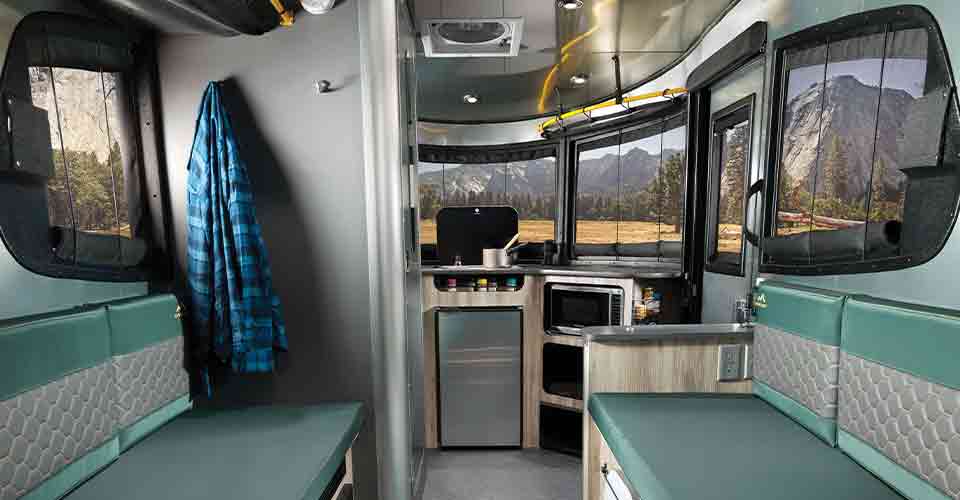
Cleaning is important whenever you’re storing your camper, but especially when you won’t see it for a while. Don’t leave it in disarray. Make sure to get all the food out (just like for short-term storage), and every wrapper and crumb hiding in between the cushions. Clean out the fridge, cabinets and any other storage spaces.
2) Give it a good once-over
You’ll need to do a thorough check of the outside of your camper to make sure there aren’t any holes or cracks. Then reseal or caulk as necessary. You may want to consult your manual or dealership to ensure you’re using the right sealant.
It’s also important to wash and wax the exterior of your camper before it sits in a storage space. Even if no one is admiring it (or it’s under a cover) you want it to be its best, not only for superficial purposes but also to keep it in great condition.
Pro tip: Don’t skimp on the cover. Camper covers are a great asset to have, especially if you’re planning on storing your camper outdoors.
3) Don't forget about the tires, again
Just like with short term storage, you can put your camper on blocks to prevent flattening. You can also use jacks to give your tires a break.
Pro tip: Another way to avoid buying new tires before your next trip is to drive your camper around about once a month to keep the wheels spinning.
4) Fluids are a big deal
Drain all freshwater fluids including waterlines, holding tanks, plumbing and heating tanks before storage. If you’re winterizing your camper, you’ll also want to use RV antifreeze as another level of protection.
5) Defrost the fridge/freezer
Since there’s no more food in the fridge or freezer, it’s a good idea to wipe or scrub them down and crack the doors open. This way, you’ll avoid any mold or mildew build up while it’s sitting in storage.
6) Lock it up
It’s always a good idea to have multiple layers of protection for your belongings, especially something as big as a camper. Make sure you have a lock on your camper!
Pro tip: If you’re unsure how to do every step of the winterization process, or you just don’t want to deal with the necessary hassle, many RV dealerships offer winterization packages.
Common FAQs About Camper Storage
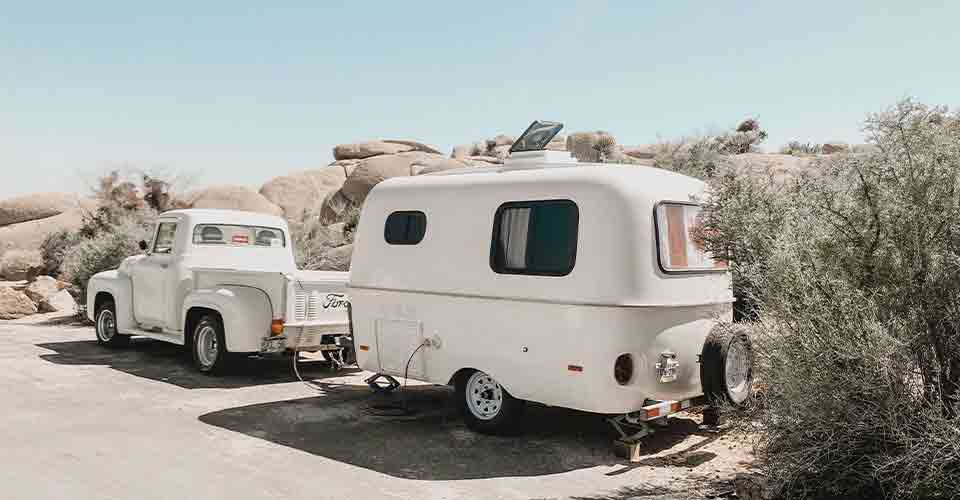
Q: How much does it cost to store a camper?
A: The cost of camper storage can vary. The type of storage, the size and location can affect the price. Our store pages always display our current low rates and promotions for you to see. Check out our storage location finder for available camper storage near you!
Q: Can you store a camper in a storage unit?
A: Yes, you can! You’ll have to check availability at your nearest facility for drive-up storage units. Be sure to check the measurements to see if your camper will fit or not. If you have a large camper (like a fifth wheel or large travel trailer) you may need to get a secure outdoor parking space instead of an indoor unit. Be sure to read your Rental Agreement for more info.
Q: Can I store my travel trailer outside?
A: Yes, you can! If you store your travel trailer outside, you’ll want to wash and wax it first, and get a good storage lot rated cover and tire cover to prevent any damage from the elements. Also, follow all the tips and tricks above for the best camper storage experience.
We Caravan About You, and Camper Storage
You may be asking “RV there yet?” because if you hear one “s’more” camper pun you’re going to lose it. Don’t worry, Store Space is here to help! Just drive over to a facility near you and get out of the camper for a little while!
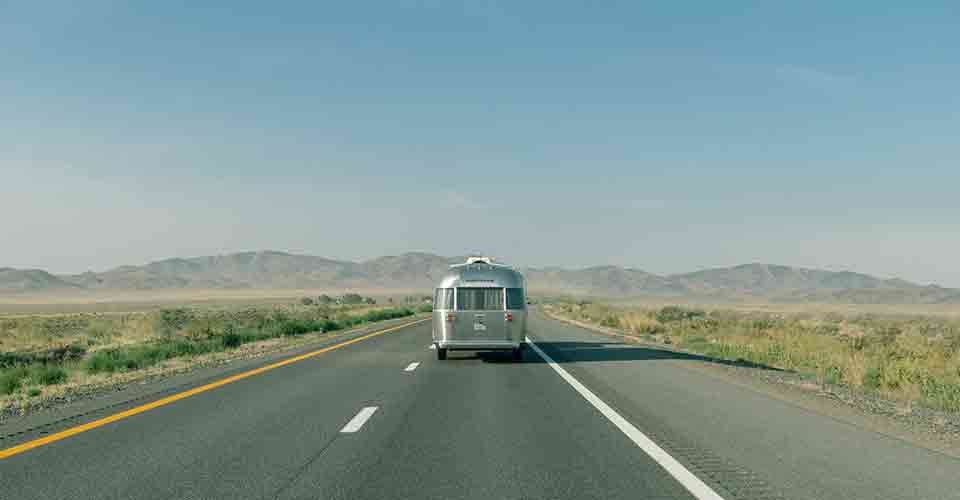
"Earth and sky, woods and fields, lakes and rivers, the mountain and the sea, are excellent schoolmasters, and teach of us more than we can ever learn from books."
John Lubbock




